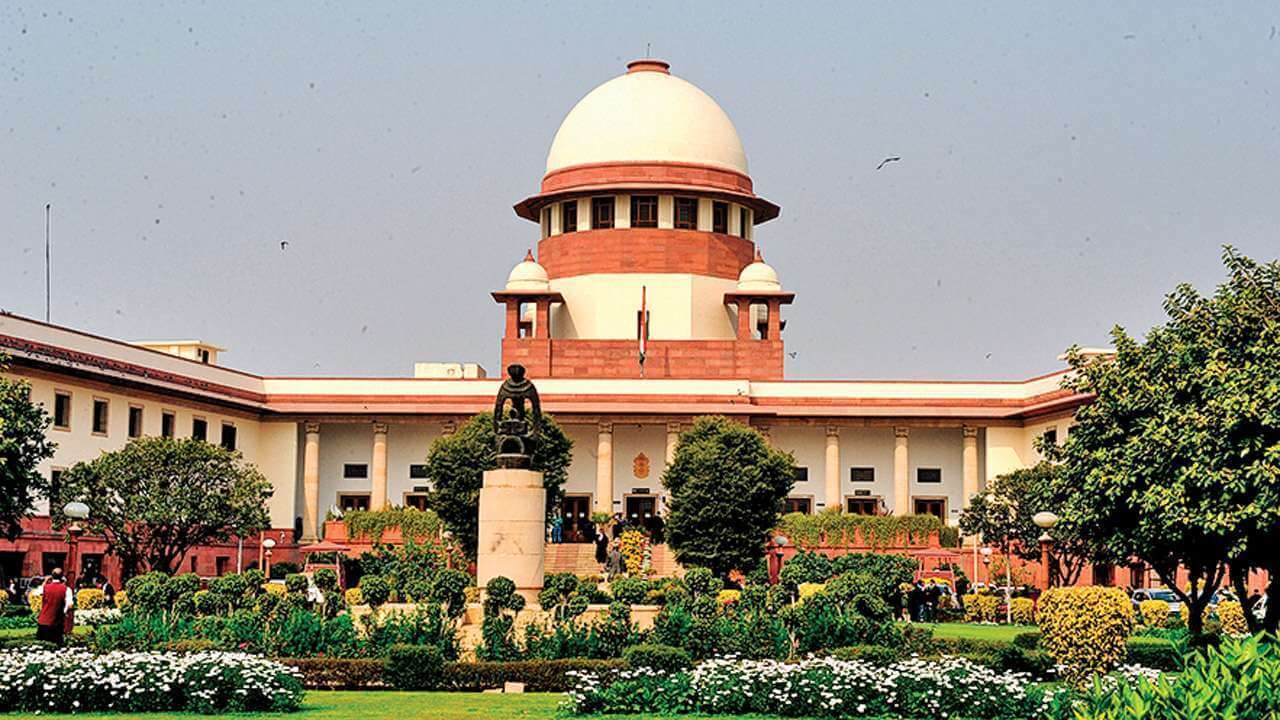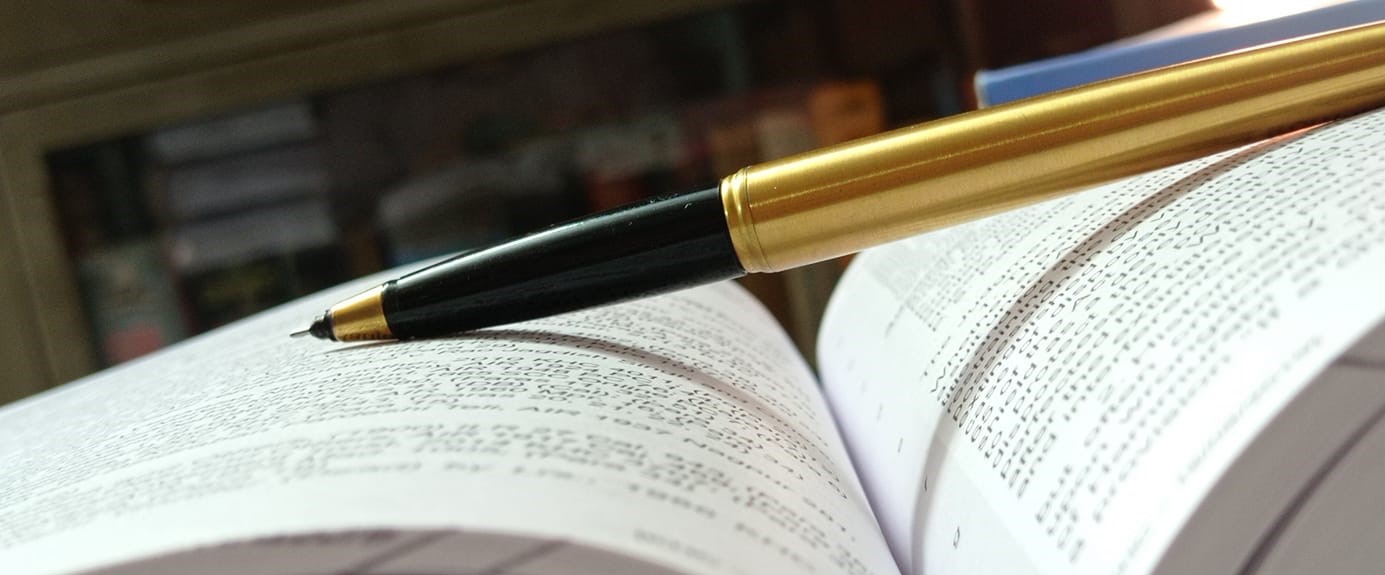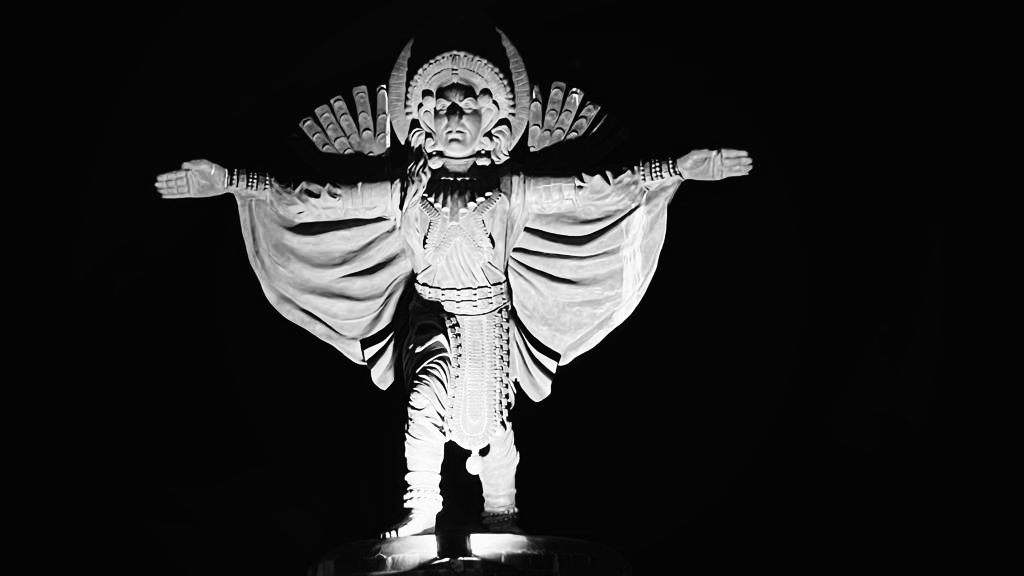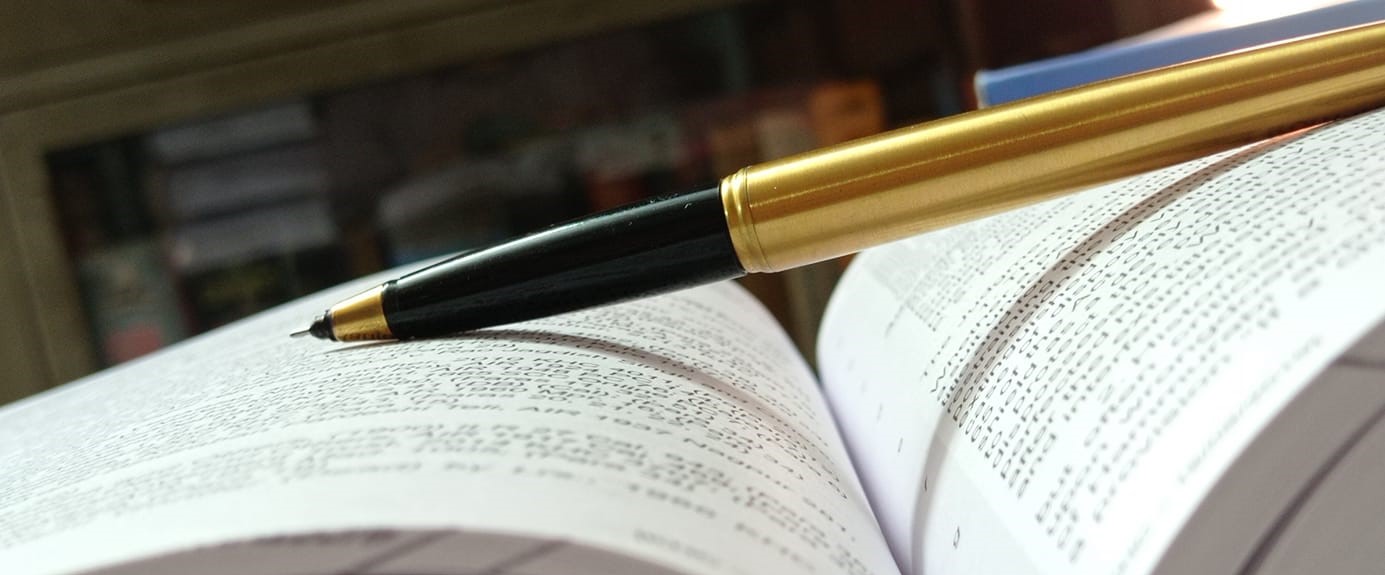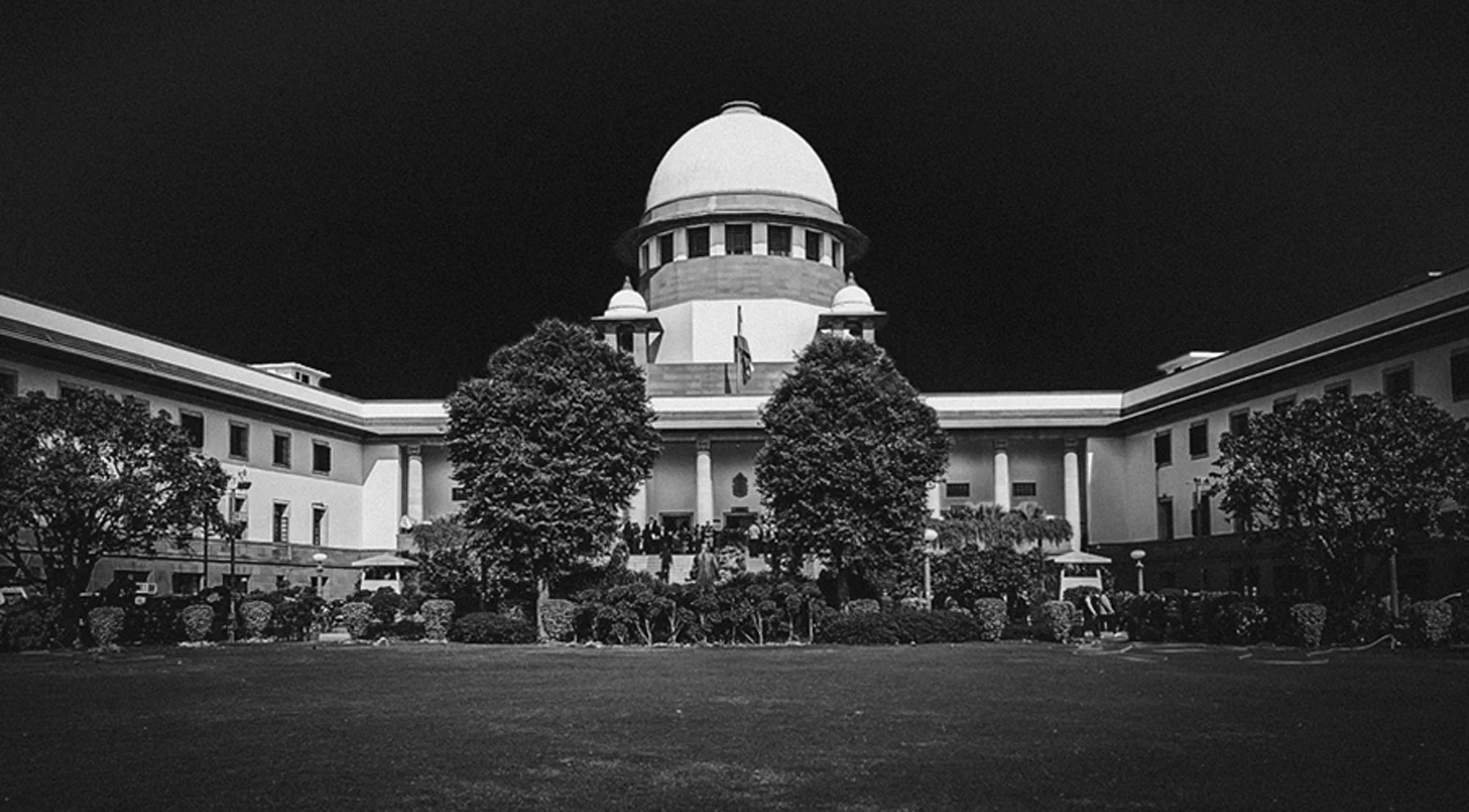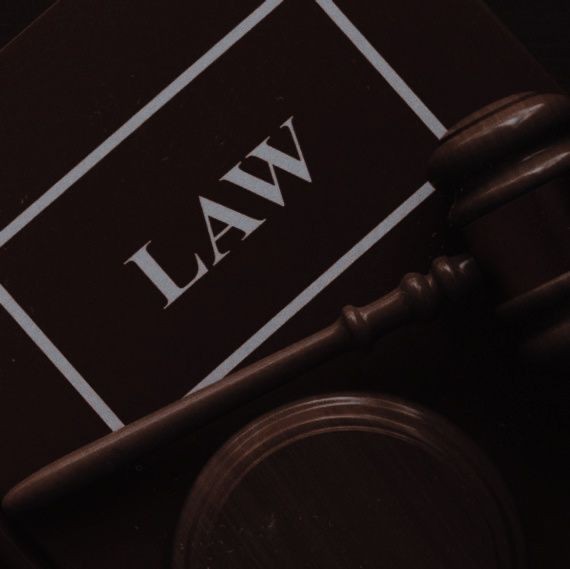It's not all about a "Second Appeal", but...............
[N.AJITH, Advocate, High Court of Kerala[1]]
Code of Civil procedure, 1908 deals with both procedure and some substantive rights like 'right of appeal' alike[2]. However, the Code omitted to define the word 'appeal'. Merriam Webster says that 'appeal is a legal proceeding whereby a case is brought before a higher court for reconsideration of the decision of a lower court'. Appeal is a remedy by which a cause determined by an inferior forum is put before a superior forum to test its correctness. The right of appeal is a substantive and valuable right available to a party aggrieved by the impugned decision[3]. Right to appeal Appeal is a continuation of the suit[4]. The legal pursuit of a remedy, suit, appeal and second appeal are steps in a series of proceedings, all interconnected by an intrinsic unity and regarded as a single legal proceeding. The right of appeal is not a mere matter of procedure, but is a substantive right. The vested right of appeal to enter the superior court accrues to the litigant and exists as on and from the date the lis commenced. Such a right can be taken away only by a subsequent enactment, if it provides so expressly or by necessary intendment and not otherwise. The Right of appeal, where one exists, cannot be denied even in exercise of the discretionary powers of the High Court[5]. The Powers and jurisdiction of an appellate court must be circumscribed by the words of the statute. A court of appeal is a 'court of error' with a normal function to correct the decision appealed from and its jurisdiction is co-extensive with that of the trial court. It cannot and ought not to do something which the trial court was not competent to do. There is no fetter on its power to do what the trial court could do[6]. What is a question? Question means anything inquired and an issue to be decided. A question may be a 'question of fact', 'question of law', 'mixed question of fact and law' and even a 'substantial question of law'. A'questionoffact'isafactualdisputebetweenpartieswhichneedbe resolved by the jury at trial and anissuewhichismaterialtotheoutcomeofthecaseandrequiresaninterpretationofconflictingviewsonthefactualcircumstancessurroundingthecase. A 'question of law' is related to an issue regarding the application or interpretation of law on a particular set of facts[7]. Substantial question of law - What is? The word 'substantial question of law' is also not defined in the Code, though such an expression is found in Art.133 of the Constitution, Sec.260A of the Income Tax Act, Sec.30 of the Workmen Compensation Act, Sec.55 and so on. The word "substantial" prefixed to "question of law" does not refer to stakes involved in the case, nor is it intended to refer only to questions of law of general importance, but refers to impact or effect of the question of law on the decision in the lis between parties. "Substantial questions of law" means not only substantial questions of law of general importance, but also substantial question of law arising in a case as between the parties. In the context of Section 100 CPC, any question of law which affects the final decision in a case is a substantial question of law as between the parties. A question of law which arises incidentally or collaterally, having no bearing on final outcome, will not be a substantial question of law. Where there is a clear and settled enunciation on a question of law, by the Supreme Court or by the High Court concerned, it cannot be said that the case involves a substantial question of law. It is said that a substantial question of law arises when a question of law, which is not finally settled by the Supreme Court (or by the High Court concerned so far as the State is concerned), arises for consideration in the case. But this statement has to be understood in the correct perspective. Where there is a clear enunciation of law and the lower court has followed or rightly applied such clear enunciation of law, obviously the case will not be considered as giving rise to a substantial question of law, even if the question of law may be one of general importance. On the other hand, if there is a clear enunciation of law by the Supreme Court (or by the High Court concerned), but lower court has ignored or misinterpreted or misapplied the same, and correct application of the law as declared or enunciated by the Supreme Court (or the High Court concerned) would have led to a different decision, the appeal would involve a substantial question of law as between the parties. Even where there is an enunciation of law by the Supreme Court (or the High Court concerned) and the same has been followed by the lower court, if the appellant is able to persuade the High Court that the legal position enunciated needs reconsideration, alteration, modification or clarification or that there is a need to resolve an apparent conflict between two viewpoints, it can be said that a substantial question of law arises for consideration. There cannot be a straitjacket definition as to when a substantial question of law arises in a case[8]. To be “substantial", a question of law must be debatable, not previously settled by the law of the land or any binding precedent, and must have a material bearing on the decision of the case and/or the rights of the parties before it, if answered either way. To be a question of law “involved in the case", there must be first, a foundation for it laid in the pleadings, and the question should emerge from the sustainable findings of fact, arrived at by Courts of facts, and it must be necessary to decide that question of law for a just and proper decision of the case. “Where neither such question of law, nor even a mixed question of law and fact was urged before the Trial Court or the First Appellate Court, a second appeal cannot be entertained." An inference of fact from the recitals or contents of a document is a question of fact, but the legal effect of the terms of a document is a question of law. Construction of a document, involving the application of any principle of law, is also a question of law. Therefore,when there is misconstruction of a document or wrong application of a principle of law in construing a document, it gives rise to a question of law. The High Court should be satisfied that the case involves a substantial question of law, and not a mere question of law. A question of law having a material bearing on the decision of the case (that is, a question, answer to which affects the rights of parties to the suit) will be a substantial question of law, if it is not covered by any specific provisions of law or settled legal principle emerging from binding precedents, and, involves a debatable legal issue. A substantial question of law will also arise in a contrary situation,where the legal position is clear, either on account of express provisions of law or binding precedents, but the Court below has decided the matter, either ignoring or acting contrary to such legal principle. In the second type of cases, the substantial question of law arises not because the law is still debatable, but because the decision rendered on a material question, violates the settled position of law. The general rule is, that High Court will not interfere with concurrent findings of fact by the Courts below. But it is not an absolute rule. Some of the well-recognised exceptions are where, (a). the courts below have ignored material evidence or acted on no evidence; (b). the courts have drawn wrong inferences from proved facts by applying the law erroneously; or (c). the courts have wrongly cast the burden of proof[9]. A question of law which affects right of the party to the suit will be 'substantial', if it is not covered by any specific provision of law, or settled legal principle emerging from biding precedents of High Court concerned, Privy Council or Supreme Court[10]. The proper test would be whether the question of law "is of general public importance or whether it directly or substantially affects the rights of the parties, and if so, whether it is either an open question in the sense that it is not finally settled by the Supreme Court or by the Privy Council or by the Federal Court or is not free from difficulty or calls for discussion or alternative views". The question of interpretation of a particular section directly and substantially affects the rights of the parties and it is an open question in the sense that it is not finally settled by the Supreme Court and it is, therefore, clearly a substantial question of law within the meaning of this test[11]. A second appeal lies only on a substantial question of law. Where no question of law, nor even a mixed question of law and fact was urged before trial court or first appellate court, a second appeal cannot be entertained unless such a course is absolutely warranted[12]. It is the 'substantial questions of law' and not a 'mere question of law', which is essential condition for maintaining a second appeal. The phrase 'substantial question of law' has not been defined in the Code. The proper test for determining whether a question of law arose in the second appeal is substantial or not would be whether it directly and substantially affects the rights of the parties and whether it is an open question in the sense that it is not finally settled by the superior courts. If the question has been settled by the highest court, the general principles to be applied in determining the question are well-settled and the question is merely of the application of those principles, the question will not be a substantial question of law[13]. The rationale The rationale behind allowing a second appeal on a question of law is that, there ought to be some tribunal having a jurisdiction which would enable it to maintain, and, where necessary, re-establish uniformity throughout the State on important legal issues, so that within the area of the State, the law, insofar as it is not enacted law, should be laid down, or capable of being laid down, by one court whose rulings will be binding on all courts, tribunals and authorities within the area over which it has jurisdiction. That is implicit in a system where the higher courts have authority to make binding decisions on question of law[14]. 'Involved in the case' - meaning Sec.100 (1) CPC says that a High Court can entertain a second appeal provided that it is satisfied that the case “involves' a substantial question of law. The word 'involves' suggests that such a question must arise in the case and an answer to the question is necessary to decide it. The To be a question of law "involved in the case" there must be first a foundation for it laid in the pleadings and the question should emerge from the sustainable findings of fact arrived at by court of facts and it must be necessary to decide that question of law for a just and proper decision of the case. Where the facts required for a point of law have not been pleaded, a litigant should not be allowed to raise that question as a substantial question of law in second appeal. An entirely new point raised for the first time before the High Court is not a 'question involved in the case' unless it goes to the root of the matter[15]. A considerable degree of necessity is presupposed[16]. Effect of 1976 Amendment Prior to the Amendment in 1976 the scope of second appeal was very wide. The Statement of objects and reasons for the amendment clarifies the situation well. “In dealing with second appeals, the courts had devised and successfully adopted several concepts, such as, a mixed question of fact and law, a legal inference to be drawn from the proved facts, and even the point that the case has not been properly approached by the courts below. This has created confusion in the minds of the public as to the legitimate scope the second appeal under Sec.100 and had burdened the High Courts with an unnecessary large number of second appeals". The Shah Committee, on arrears of cases in High Courts, observed that, “it is necessary to provide a stricter and better scrutiny of second appeals and they should be made subject to special leave, instead of giving an absolute right of appeal limiting it to a question of law". Later, the Law Commission in its 54th Report, p.187, reviewed the position, recommended that the right of second appeal should be confined to cases where a). a question of law is involved, and b). the question of law so involved is substantial. The reason for the change is to ensure that the second appeal may not become a 'third trial on facts' or 'one more dice in the gamble'. The amended Section 100 made the scope of a second appeal narrow. Sec.101 provides that no second appeal is maintainable except on the grounds specified in the Code. No second appeal is permissible under Sec.102, from a suit where the subject matter of original claim for recovery of money is less than twenty five thousand rupees. The conjoint reading of these three provisions and the cumulative effect of the restrictions imposed therein would establish the fact that an entry to a second appellate court is not for the mere asking, but extremely qualified and limited. After the 1976 Amendment, it is essential for the High Court to formulate a substantial question of law and it is not permissible to reverse the judgment of the First Appellate Court without doing so[17]. While entertaining a second appeal, the Courts should not over-look the change brought about by the 31st Amendment Act of 1976 restricting or limiting the scope of second appeal drastically and now it applies only to appeals involving substantial question of law, specifically set-out in the memorandum of appeals and formulated by the High Court. The Court, for the reasons to be recorded, may also entertain a second appeal even on any other substantial question of law, not formulated by it, if the Court is satisfied that the case involves such a question. Therefore, the existence of a substantial question of law is a sine- qua- non for the exercise of jurisdiction under the provisions of Section 100 of the Code[18]. It is the obligation on the Court of Law to further the clear intendment of the Legislature and not to frustrate it by ignoring the same. High Court cannot ignore the statutory provisions of Section 100 of the Code and re-appreciate the evidence and interfere with the findings of facts unless the substantial question of law or a question of law duly formulated is to be decided. The second appeal does not lie on the ground of erroneous findings of facts based on appreciation of the relevant evidence. Interestingly, there is no prohibition to entertain a second appeal even on question of fact provided the Court is satisfied that the findings of the courts below were vitiated by non-consideration of relevant evidence or by showing erroneous approach to the matter and findings recorded in the court below are perverse[19]. The High Court, after having admitted the second appeal and having formulated the substantial questions of law, could not have disposed of the same by only stating its satisfaction on findings of first appellate court[20]. Hearing of an appeal without formulating substantial questions of law is illegal and without jurisdiction. The High Court cannot proceed to hear a Second Appeal without formulating the substantial questions of law involved in the appeal[21]. If the Court does so, it is abnegation or abdication of the duty cast on the court. The existence of substantial question of law is the sine qua non for the exercise of the jurisdiction under Sec.100 of the Code. But, the power of the High Court to hear any other substantial question of law not earlier formulated is not taken away if the case involves such question and the court records reasons for its satisfaction. The phrase "substantial question of law", as occurring in the amended S. 100 is not defined in the Code. The word substantial, as qualifying "question of law", means of having substance, essential, real, of sound worth, important or considerable. It is to be understood as something in contradistinction to technical, of no substance or consequence, or academic merely. However, the legislature has chosen not to qualify the scope of "substantial question of law" by suffixing the words "of general importance" as has been done in many other provisions such as S. 109 of the Code or Art. 133(1) (a) of the Constitution. The substantial question of law on which a second appeal shall be heard need not necessarily be a substantial question of law of general importance[22]. If a question of law has already been settled by the highest court, that question, however important and difficult it may have been regarded in the past and however large may be its effect on any of the parties, would not be regarded as a substantial question of law. By importing the expression substantial question of law, the Commission can be said only to have sought to eliminate frivolous, flimsy and fragile second appeals and exhorted the High Courts to be on the strictest vigil against entry of appeals on inconsequential but ingenious grounds. It does not by its own avowal preclude admission of appeal in cases where there has been judicial misconduct in the assessment or admission of evidence. This predicates that facts found upon such misconduct of the proceedings and misapplication of the procedure with regard to evidence will necessarily be a question of law touching the legality of inference on proved facts. If the law is settled but is not applied to a set of facts despite the finding warranting its application, it is not perceivable how the legislature could conceive of barring the High Court from setting right the erroneous application. Where the finding of fact is on no evidence, then it will be either on assumptions, or on surmises, and conjectures. This will bring the judicial system to discredit before the people. How such a situation shall be allowed to go unremedied where it leads to the denial of justice?[23] Finding of fact, however erroneous, cannot be challenged in a second appeal. But a finding reached on the basis of additional evidence which ought not to have been admitted and without any consideration whatever of the intrinsic and palpable defects in the nature of the entries themselves which raise serious doubts about their genuineness cannot be accepted as a finding that is conclusive and cannot be touched in Second Appeal. Where the findings stand vitiated by wrong test and based on assumption and conjectures and resultantly there is an element of perversity involved therein, the High Court will be within its jurisdiction to deal with the issue. This is, however, only in the event such a fact is brought to light by the High Court explicitly and the judgment should also be categorical as to the issue of perversity vis-à -vis the concept of justice. Perversity itself is a substantial question of law. What is required is a categorical finding on the part of the High Court as to perversity[24]. Circumstances under which High courts can interfere with the findings of lower courts or concurrent findings of fact are explained in detail in Nagarajappa's case[25]. Common mistakes in dealing with Sec.100 CPC In actual practice, while deciding second appeals, mandatory as well as statutory requirements are seldom borne in mind and second appeals are being entertained without conforming to the discipline[26]. Some of the oft-repeated errors relating to scope of second appeal and procedural aspect of second appeal, are enumerated as follows: (a) admitting a second appeal when it does not give rise to a substantial question of law; (b) admitting second appeals without formulating substantial question of law; (c) admitting second appeals by formulating a standard or mechanical question such as "whether on the facts and circumstances the judgment of the first appellate court calls for interference" as the substantial question of law, (d) failing to consider and formulate relevant and appropriate substantial question(s) of law involved in the second appeal, (e) rejecting second appeals on the ground that the case does not involve any substantial question of law, when the case in fact involves substantial questions of law; (f) reformulating the substantial question of law after conclusion of hearing, while preparing the judgment, thereby denying an opportunity to the parties to make submissions on the reformulated substantial question of law; and (g) deciding second appeal by re-appreciating evidence and interfering with findings of fact, ignoring the questions of law. These lapses or technical errors lead to injustice and also give rise to avoidable further appeals to the Supreme Court and remands by the Supreme Court, thereby prolonging the period of litigation. Care should be taken to ensure that the cases not involving substantial questions of law are not entertained, and at the same time ensure that cases involving substantial questions of law are not rejected as not involving substantial questions of law[27]. Dealing with a Second Appeal Memorandum of appeal must state the substantial questions of law[28]. It is neither proper nor permissible to raise all new grounds in second appeal[29]. A new plea of limitation, which is not merely one of law, but a mixed question of fact and law, cannot be raised for the first time in a second appeal[30]. The counsel who appeared and filed vakalath for the respondent subsequently died. No vakalath seen filed for the legal representatives of the deceased respondent. It is evident that the High Court disposed of the appeal without giving an opportunity to the legal representatives of the deceased respondent of being heard. The judgment is set aside and remanded[31]. There is no prohibition in law to frame the additional substantial question of law if the need so arises at the time of the final hearing of the appeal[32]. In Ram Prasad's case[33], Supreme Court held that existence of substantial question of law is a sine-qua-non for the exercise of jurisdiction under Section 100 of the Code and entering into the question as to whether need of the landlord was bonafide or not, was beyond the jurisdiction of the High Court as the issue can be decided only by appreciating the evidence on record. Similar view has been reiterated in a series of cases[34]. A question of law, though available based on pleadings and evidence, if omitted to be raised in early stage, can be raised later[35]. Where the High Court, just referred to grounds A to E raised in the memorandum of appeal as the substantial questions of law, set aside the concurrent findings of the Courts below, the Court did not fulfill the mandate of law[36]. Second appeal can be heard only on substantial questions of law formulated by the High Court. Second appeal can be dismissed on objection raised by the respondent that the questions so formulated do not arise in the case or the same are not substantial questions of law. Any substantial question of law not initially framed but in the opinion of the Court does arise in the case, such questions can be framed subsequently by assigning reasons[37]. Scope of interference in second appeal A second appeal cannot be disposed of without framing a substantial question of law. Cursory disposal of the second appeal in limine by the High Court without mentioning the facts, the submissions of the appellant, the points arising in appeals and legal principles applicable to the case, cannot be countenanced[38]. Words 'prim facie perverse and error apparent on the face of the record' are not a 'mantra' and cannot be employed to permit High Court to do in second appeal what the law enjoins on it not to do[39]. Mere framing of substantial questions of law is not enough. Second appeal must be disposed of on consideration of and in answer to the said questions[40]. No second appeal can be entertained on a question of fact. Question of re appreciation of evidence and framing of substantial questions as to whether findings relating to facts by the court below could vitiate due to irrelevant considerations[41]. “The formulation of substantial question of law or reformulation of the same in terms of the proviso arises only if there are some questions of law and not in the absence of any substantial question of law." If no such question arises, it is not necessary for the High Court to frame any substantial question of law[42]. Recently, the Supreme Court has affirmed the duty of courts and said, “even if no question of law is framed at the stage of admission, at least before deciding the case, said question of law ought to have been framed"[43]. Perversity is the limit to interfere with the concurrent findings of the courts below. In a second appeal under Section 100 CPC there is very limited scope for re-appreciating the evidence or interfering with findings of fact rendered by trial court or the first appellate court. When such divergent findings on fact were available before the High Court in an appeal under Section 100 CPC though re-appreciation of the evidence was not permissible, except when it is perverse, but it was certainly open for the High Court to take note of the case pleaded, evidence tendered, as also the findings recorded by the two courts which were at variance with each other and one of the views taken by the courts below was required to be approved. Question of law for consideration will not arise in abstract but in all cases will emerge from the facts peculiar to that case and there cannot be a strait jacket formula[44]. Appellate court in second appeal shall not assume jurisdiction to interfere just because another view is possible on appreciation of evidence[45]. Generally the High Court shall not interfere with the concurrent finding of fact under Sec.100[46]. Concurrent finding on a material issue should not be upset[47]. But, it is liable to be interfered with when a very important piece of evidence in the nature of an admission by the defendant has been overlooked by the Courts below[48]. Where the substantial question of law had already been decided by the Authority which is binding on the other Courts like the judgments of the Supreme Court under Article 141 of the Constitution is binding on all other Courts etc., it does not remain a substantial question of law since there remains nothing more to interpret on the point[49]. Where a point of law has not been pleaded or is found to be arising between the parties in the absence of any factual format, a litigant should not be allowed to raise that question as substantial question of law in Second Appeal. The mere appreciation of the facts, the documentary evidence or the meaning of entries and the contents of the document cannot be held to be raising a substantial question of law. But, where it is found that the First Appellate Court has assumed jurisdiction which did not vest in it, the same can be adjudicated in the Second Appeal, treating it as substantial question of law. Where the First Appellate Court is shown to have exercised its discretion in a judicial manner, it cannot be termed to be an error either of law or of procedure requiring interference in Second Appeal[50]. Under no circumstances, question of limitation be said to be irrelevant and academic[51]. An order admitting appeal or one formulating a substantial question of law is not final orders[52]. Court cannot partly admit the appeal and reject it partly[53]. High Court has no power, once the appeal is admitted to file to dismiss it without hearing on merits, subject ofcourse in the teeth of Sec.100 CPC[54]. In case the appeal does not involve any substantial question of law, the High Court has no other option but to dismiss the appeal. However, in order to come to a conclusion that the appeal does not involve any substantial of law, the High Court has to record the reasons. Giving reasons for the conclusion is necessary as it helps the adversely affected party to understand why his submissions were not accepted. The Court must display its conscious application of mind even while dismissing the appeal at the admission stage[55]. In a mortgage by conditional sale or sale with a condition of re-purchase, the nature of transaction was considered as a substantial question of law[56]. A question of law where there are conflicting views, a finding without evidence on record, disregard, or non-consideration of relevant and admissible evidence, misconstruing of evidence and documents etc. are considered as substantial. Finding of genuineness of a Will is ofcourse a question of fact and an interference in Second Appeal is bad[57]. Objection as to the validity of a gift deed is taken as a mixed question of fact and law. Concurrent finding of courts below cannot be lightly interfered in a routine and casual manner by substituting subjective satisfaction[58]. Readiness ad willingness to perform the contract is a mixed question of fact and law[59]. But, in a suit for specific performance of agreement to sell property, the trial court framed an issue regarding the readiness and willingness of the plaintiff to perform his part of the contract and that issue of fact was concurrently found in his favour. It was held that the High Court cannot take a different view in second appeal by re-appreciation of evidence, treating the issue as a substantial question of law[60]. Construction of documents is a substantial question of law and that proposition is settled long back by the Privy Council[61], and affirmed and followed by the Supreme Court in a series of cases[62]. “Most of the second appeals succumb at the threshold itself". ************* [1] @: najithmenon@gmail.com [2] Nahar Industrial Enterprises Ltd. V. Hong Kong and Shanghai Banking Corpn. (2009) 8 SCC 646; Shankar Ramchandra Abhyankar v. Krishnaji Dattatraya Bapat, (1970) 1 SCR 322 /AIR 1970 SC 1; Dayawati v. Inderjit, (1966) 3 SCR 275 / AIR 1966 SC 1423 [3] Bolin Chetia v. Jogadish Bhuyan (2005) 6 SCC 81 / AIR 2005 SC 1872; Transmission Corporation of A.P. V. Ch. Prabhakar & Ors., (2004) 5 SCC 551 [4] Purushotham Reddy v. K. Satish (2008) 8 SCC 505; Bhagmal v. Munsi (2007) 1 SCR 1114 [5] Garikapati Veeerayya v. N. Subbaiah Choudhry AIR 1957 SC 540 / 1957 SCR 488; Maria Cristina De Souza Sodder v. Amria Zurana Pereira Pinto (1979) 1 SCC 92 / AIR 1979 SC 1352; Pranab Kumar Mitra v State of WB 1959 Supp. (1) SCR 63 / AIR 1959 SC 144; Darshan Singh v Ram Pal Singh 1992 Supp. (1) SCC 191 / AIR 1991 SC 1654 [6] Shankar Kerba Jadhav v State of Maharashtra (1969) 2 SCC 793 / AIR 1971 SC 840; Tejinder Singh Gambhir v. Gurpreet Singh (2014) 10 SCC 702 [7] Union of India v. Ibrahim Uddin (2012) 8 SCC 148 [8] SBI v. S.N Goyal (2008) 8 SCC 92 / AIR 2008 SC 2594 [9] Nazir Mohamed v. J. Kamala,2020 SCC Online SC 676 [10] Hero Vinoth v. Seshammal (2006) 5 SCC 545 / AIR 2006 SC 2234; Madan Lal v. Bal Krishan (2005) 13 SCC 555 / AIR 2006 SC 645; Jwala Singh v. Jagat Singh (2006) 10 SCC 148; Lankeshwar Malakar v. R. Deka (2006) 13 SCC 574; Patrik JJ Saldanah v. Anthony MM Saldanha AIR 2007 SC 2620; Boodireddy Chandraiah v. Airgela Laxmi (2007) 8 SCCC 155 [11] Mahindra & Mahindra Ltd. v. Union of India, (1979) 2 SCC 529 / AIR 1979 SC 798; Chunilal V Mehta and Sons Ltd. v. Century Spg. and Mfg. Co. Ltd. AIR 1962 SC 1314; Pankaj Bhargava v. Mohinder Nath (1991) 1 SCCC 556 / AIR 1991 SC 1233; Rajeshwari v. Puran Indoria (2005) 7 SCC 60; M.B Ramesh v.K.M Veeraje Urs (2013) 7 SCC 490/ AIR 2013 SC 2088 [12] Sundaraganeshan v. Ramesha Menon 2021 (2) KLT 892 [13] Damjibhai Bijibhai Vasava v. Ranchodbhai Zinabhai (2000) 3 SCC 22 / AIR 2000 SC 1000 [14] Gurdev Kaur v. Kaki (2007) 1 SCC 546 / AIR 2006 SC 1975 [15] Hero Vinoth v. Seshammal (2006) 5 SCC 545 / AIR 2006 SC 2234; Govindaraju v. Mariamman (2005) 2 SCC 500 / AIR 2005 SC 1008 [16] Santhosh Hazari v. Purushottam Tiwari (2001) 3 SCC / AIR 2001 SC 965; Pankaj Bhargava v. Mohinder Nath (1991) 1 SCC 556 / AIR 1991 SC 1233 [17] Sheel Chand v. Prakash Chand (1998) 6 SCC 683 / AIR 1998 SC 3063; Tahera Khatoon (dead) through LRs v. Salambin Mohammad (1999) 2 SCC 635 / AIR 1999 SC 1104; Ishwar Dass Jain (dead) through LRs v. Sohan Lal (dead) through LRs (2000)1 SCC 434 / AIR 2000 SC 426; Kundan Singh v. Salinder Kaur 2010 (6) Supreme 32; Kichha Sugar Co. Ltd v. Roofrite Pvt. Ltd (2009) 16 SCC 280; Babulal v. Shankarlal (2008) 17 SCC 638; State of Punjab v. Amarjit Singh (2010) 15 SCC 535; Syeda Rahimunnisa v. Malan Bi (2016) 10 SCC 315 / AIR 2016 SC 4653; Thiagarajan v.Venugopalaswamy B.Koli (2004) 5 SCCC 762 / AIR 2004 SC 1913 / 2004(2) KLT 358; Apparaju Malhar Rao v. Tula Venkataiah (2017) 8 SCC 827; Union of India v. Diler Singh (2016) 13 SCC 71 / AIR 2016 Sc 3131; SNDP Sakhayogam v. Kerala Atmavidya Sangam (2017) 8 SCC 835 [18] Municipal Committee, Hoshiarpur v. Punjab SEB, (2010) 13 SCC 216 [19] Jagdish Singh V. Nathu Singh, 36 AIR 1992 SC 1604; Smt. Prativa Devi (Smt.) V. T.V. Krishnan, (1996) 5 SCC 353; Satya Gupta (Smt.) @ Madhu Gupta V.Brijesh Kumar, (1998) 6 SCC 423; Ragavendra Kumar V. Firm Prem Machinary & Co., AIR 2000 SC 534; Molar Mal (dead) through Lrs. V.M/s. Kay Iron Works Pvt. Ltd., AIR 2000 SC 1261; Bharatha Matha & Anr. V. R. Vijaya Renganathan & Ors., AIR 2010 SC 2685; and Dinesh Kumar V. Yusuf Ali, (2010) 12 SCC 740; Dinesh Kumar v. Yusuf Ali, AIR 2010 SC 2679; Municipal Committee, Hosiarpur v. Punjab State Electricity Board & Ors. , JT 2010 (11) SC 615; and Bharatha Matha & Anr. V. R. Vijaya Renganathan & Ors. AIR 2010 SC 2685). (See also: Kailash Paliwal v. Subhash Chandra Agrawal, AIR 2013 SC 2923; and Laxmibai (Dead) thr. L.Rs. & Anr. v. Bhagwantbuva (Dead) thr. L.Rs. & Ors., AIR 2013 SC 1204 [20] Ramdas Waydhan Gadlinge v. Gyanchand Nanuram Kripalani (2021) 4 KLJ 243 (SC) [21] K. Raj v. Muthamma (2001) 6 SCC 279 / AIR 2001 SC 1720; Roop Singh (dead) by LRs v. Ram Singh (dead) by LRs (2000) 3 SCC 708 / AIR 2000 SC 1485; Dnyanoba Bhaurao Shemade v. Maroti Bhaurao Marnor (1999) 2 SCCC 471/ AIR 1999 SC 864; Ragulavalasa Chiranjivi Rao v. State of AP (2009) 13 SCC 33; Jaskaran Singh v. Punjab Ministry of Home Affairs (2009) 9 SCC 59; Kamla V. Gaurav Kumar Gupta (2009) 13 SCC 253 [22] Santhosh Hazari v. Purushottam Tiwari (dead) by LRs. (2001) 3 SCC 179 / AIR 2001 SC 965 [23] Ratanlal v. Kishorilal AIR 1993 Cal.144 [24] Kulwant Kaur v. Gurdial Singh Mann (dead) by LRs (2001) 4 SC 262 / AIR 2001 SC 1273; Arjan Singh v. Kartar Singh 1951 SCR 258 / AIR 1951 SC 193; Sugani v. Rameshwar Das AIR 2006 SC 2172; H.P Pyarejan v. Dasappa (2006) 2 SCC 496 / AIR 2006 SC 1144; Hero Vinoth v. Seshammal (2006) 5 SCC 545 /AIR 2006 SC 2234; Town Planning, Municipal Council v. Rajappaa (2008) 2 SCC 593; Bakhtiyar Hussain v. Hafiz Khan (2007) 12 SCC 420/ AIR 2007 SC (Supp.) 947; Maria Colaco v. Alba Flora Herminda D'Souza (2008) 5 SCC 268 / AIR 2008 SC 1965; Tallam Gangadharaan v. U Ismail Sahib (2009) 17 SCC 389; Dr. Ramnath Murti v. Ramappa (2011) 1 SCC 158; S.C Jindal v. UHBVNL AIR 2011 SC (Supp.) 516; Shiv Cotex v. Trigun Auto Plast Pvt. Ltd (2011) 9 SCC 678 [25] Nagarajappa v. Narasimha Reddy AIR 2021 SC 4259 / 2021(5) KLT Online 1137(SC) [26] Kshitish Chandra Purkait V. Santosh Kumar Purkait & Ors., AIR 1997 SC 2517 [27] SBI v. S.N. Goyal, (2008) 8 SCC 92 / AIR 2008 SC 2594 [28] K.K. Kannan v. Koolivathukkal Karikan Mandi (2010) 2 SCC 239 / AIR 2010 SC (Supp.) 194 [29] G. Suryakumari v. B. Chandramouli (2010) 2 SCCC 254 / AIR 2009 SC (Supp.) 2133 [30] Banarasi Das v. Kanshi Ram AIR 1963 Sc 1165 / (1964) 1 SCR 316 [31] Kanth Shri v. Munna (2010) 2 Scale 582 [32] Union of India V. Ibrahim Uddin & Anr., (2012) 8 SCC 148 [33] Ram Prasad Rajak V. Nand Kumar & Bros. & Anr., AIR 1998 SC 2730 [34] Tirumala Tirupati Devasthanams V. K.M. Krishnaiah, (1998) 3 SCC 331; State of Rajasthan V. Harphool Singh, (2000) 5 SCC 652; Rajappa Hanamantha Ranoji V. Mahadev Channabasappa & Ors., AIR 2000 SC 2108; Santakumari & Ors. V. Lakshmi Amma Janaki Amma (2000) 7 SCC 60; Satyamma V. Basamma (Dead) by LRs, (2000) 8 SCC 567; Santosh Hazari V. Purushottam Tiwari, AIR 2001 SC 965; Kulwant Kaur & Ors. V. Gurdial Singh Mann, AIR 2001 SC 1273; M.S.V. Raja V. Seeni Thevar, (2001) 6 SCC 652; Hafazat Hussain V. Abdul Majeed & Ors., (2001) 7 SCC 189; V. Pechimuthu V. Gowrammal, AIR 2001 SC 2446; Neelakantan & ors. V. Mallika Begum, AIR 2002 SC 827; Md. Mohammad Ali (Dead) by L.Rs. V. Jagdish Kalita & Ors., (2004) 1 SCC 271; Rajeshwari v. Puran Indoria, (2005) 7 SCC 60) and Bharatha Matha & Anr. V.R. Vijaya Renganathan & Ors., AIR 2010 SC 2685 [35] Mohamad Laiquiddin v. Kamla Devi Mishra (2010) 2 SCC 407 [36] State of Himachal Pradesh v. Milkai Ram (2007) 15 SCC 750 [37] Shivaji Balaram Haibatti v. Avinash Maruti Pawar (2008) 11 SCC 652 [38] Bismillah Be v. Majeed Shah (2017) 2 SCC 274 / AIR 2017 SC 206 [39] M.C Hegde v. Vasudev D. Hegde (2000) 2 SCC 213 [40] Kunwar Lal v. Deva Bai (2004) 13 SCC 535 [41] Bharatha Matha v. Vijaya Renganathan (2010) 6 SCALE 53 / AIR 2010 SC 2685 [42] Kirpa Ram v. Surendra Deo Gaur 2020 SCC Online SC 935 [43] Seethakathi Trust Madras v. Krishnveni AIR 2022 SC 558 / AIR Online 2022 SC 34 [44] Balasubramanian v. M. Arockiasamy2021 SCC Online SC 655; Kulwant Kaur v. Gurdial Singh Mann (2001) 4 SCC 262 / AIR 2001 SC 1273; Union of India v. Ram Prakash (2010) 7 SCC 93; Sheel Chand v. Prakash Chand (1998) 6 SCCC 683/ AIR 1998 SC 3063 [45] Veerayee Ammal v. Seeni Ammal (2002) 1 SC 134 / AIR 2001 SC 2920 [46] Ranjit Singh v. Jaimal Singh (2001) 10 SC 474 [47] Udham Singh v. Ram Singh (2007) 15 SCC 728; United Church of Northern India v. Jibral Narjiary (2007) 15 SCC 728 [48] Deva v. Sajjan Kumar (2003) 7 SC 481 / AIR 2003 SC 3907; Janki Narayan Bhoir v. Narayan Namdeo Kadam (2003) 2 SC 91 / AIR 2003 SC 761; Sha Babu Lal v. Melaram (2002) 10 SCC 146 [49] Ram Kishan Dalmia V. Justice Tendolkar, AIR 1958 SC 538; and Mohammed Haneef Quareshi V. State of Bihar, AIR 1958 SC 731; Bhagwan Swaroop V. State of Maharashtra, AIR 1965 SC 682 [50] Kondiba Dagadu Kadam v. Savitribai Sopan Gujar (1999) 3 SCC 732 / AIR 1999 SC 2213 [51] Padmanath Goswami v. Banamali Das (2004) 13 SCC 651 [52] S.B Minerals v. MSPL Ltd. (2010) 12 SCC 24 / AIR 2010 SC 1137 [53] Ramji Bhagala v. Krishnarao Karirao Bagra (1982) 1 SCC 433 / AIR 1982 SC 1223 [54] Jhanda Singh v. Gram Sabha of Village Umri (1971) 3 SCC 980 [55] Hasmat Ali v. Amina Bibi,2021 SCC Online SC 1142 [56] Ramlal v. Phagua (2006) 1 SCCC 168 / AIR 2006 SC 623 [57] Aparsini (dead) through LRs v. Atma Ram (1996) 8 SCC 321/ AIR 1996 SC 1558 [58] Brij Raj Singh (dead) by LRs v. Sewak ram (1999) 4 SCC 331/ AIR 1999 SC 2203; Karnataka Board of Wakf v. Anjuman -E-Ismail Madris -Un-Niswan (1999) 6 SCC 343 / AIR 1999 SC 3067 [59] Ram Kumar Agarwal v. Thawar Das (dead) through LRs (1999) 7 SCC 303 / AIR 1999 SC 3248 [60] Veerayee Ammmal v. Seeni Ammal AIR 2001 SC 2920; Saraswati Devi Gupta v. Harnarayan Johri (2006) 1 SCC 729; Ramlal v. Phagua (2006) 1 SCC 168 / AIR 2006 SC 623; Haryana State Industrial Corpn. V. Corpn. Mfg.Co (2007) 8 SCC 120; Shakuntala v. Lt. Col.Mukhtiyar Singh (2008) 11 SCC 42; Madan Kishore v. Major Sudhir Sewal (2008) 8 SCC 744/ AIR 2009 SC (Supp.) 978; Shyam Lal v. Sanjeev Kumar (2009) 12 SCC 454 / AIR 2009 SC 3115; Waheed Baig v. Bangi Lakshmamma (2008) 14 SCCC 435; United Church of North India v. Jibhral Narjinary (2008) 15 SCC 728 [61] Guran Ditta v. Ram Ditta AIR 1928 PC 172 / 55 IA 235 / ILR 55 Cal.944 [62] Kochukakkada Aboobakkar v. Attah Kasim (1996) 7 SCCC 389 / AIR 1996 SC 3111; Neelu Naarayani v. Lakshmanan (1999) 9 SCC 237 ; Santaakumari v. Lakshmi Amma Jaanaki Amma (2000) 7 SCC 60 / AIR 2000 SC 3009; Hero Vinoth v. Seshammal (2006) 5 SCC 545 / AIR 2006 SC 2234


